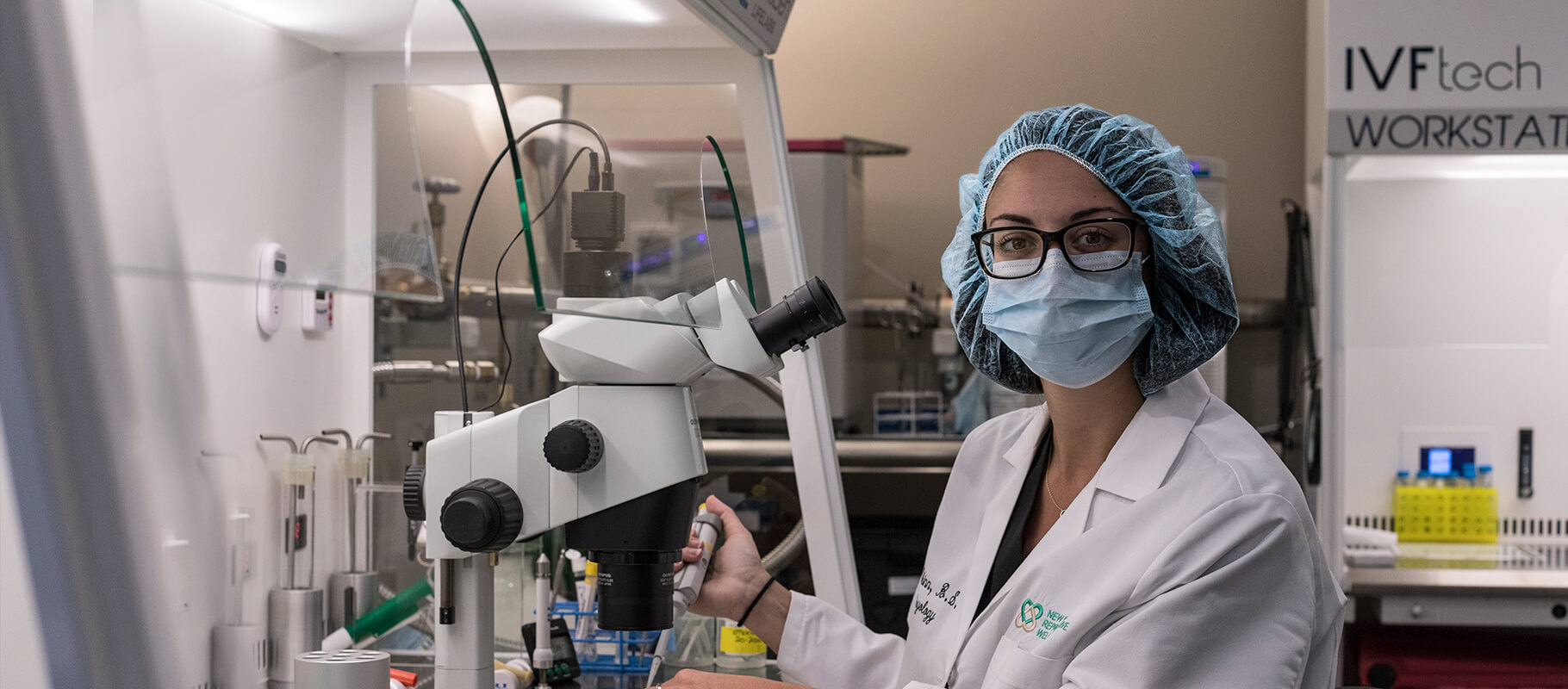The full Shared Egg Freezing journey
Your journey will closely follow the traditional Egg Freezing journey including:
-
Stimulating Egg Production
During this step, you’ll begin hormonal treatments by either taking a pill or an injectable medication. This medication encourages your ovaries to produce more mature eggs than they would naturally. We’ll track your egg development with blood tests and ultrasounds. It takes time for your body to adjust to the hormones and nurture your new eggs, so this stage can take several weeks.
-
Ovulation and Egg Retrieval
Once you’ve produced enough mature eggs, you’ll receive a hormone injection that induces ovulation (releasing the mature eggs). After about 36 hours, you’ll return to our office for the outpatient egg retrieval procedure. An anesthesiologist will place you under IV sedation and our specialists will remove the eggs. This only takes about 15 minutes, and you’ll rest comfortably afterwards in one of our recovery rooms. After about 30 minutes, you’ll be able to go home.
-
Egg Vitrification
Vitrification is a special way to freeze your eggs and embryos that avoids trauma to the cells. Water is removed from the eggs or embryos and replaced with an “antifreeze”. Then the egg is quickly brought to a very cold temperature. By removing the water and freezing it quickly, your eggs or embryos are safe from damaging ice crystal formation.
How does the egg donation process work?
FAQs
Once the screening process is complete the egg donation cycle takes about 12-14 days. The cycle includes about 10-12 days of medications and ends with an egg retrieval. The egg retrieval is a quick, 30 minute, outpatient procedure that's done under IV sedation. Patients return to their home (if local) or hotel the same day and can travel the next day (if home is not local).
It is important to note that side effects are extremely variable from person to person. In general, egg donation does have potential side effects. Possible symptoms from the medication taken prior to including bloating, abdominal pain and swelling, breast tenderness and moodiness. The egg retrieval procedure is guided by transvaginal ultrasound and while serious complications are quite rare they can include bleeding, internal organ damage and infection.
Donors will take birth control prior to the cycle start for timing purposes. Once in cycle they will take injectable medications for 10-12 days. They will also receive some medications during the egg retrieval procedure through their IV administered by anesthesia. Your physician will outline the full regimen with you in more detail during your first visit.
No. Except in rare circumstances where uncommon side effects result from the egg retrieval process, donation will have no impact on future fertility.









